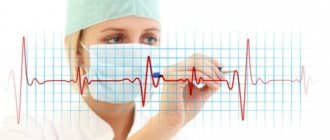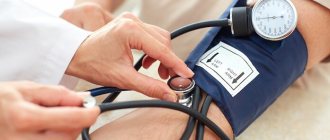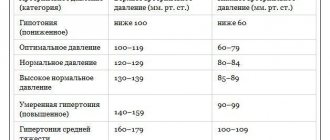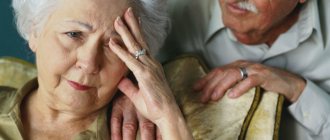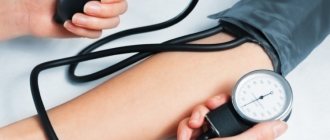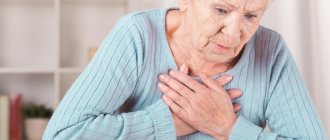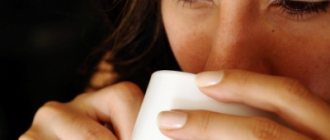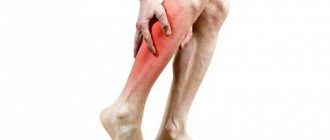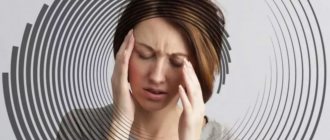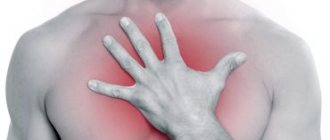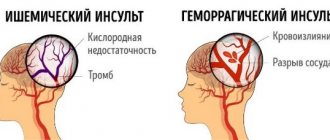Hypertension develops when the regulation of blood circulation is disrupted. One of the main reasons for malfunctioning of the cardiovascular system in old age is weakness and fragility of blood vessels. When elasticity decreases, they can no longer fully perform their functions. As a result, the intensity of blood flow is disrupted and a persistent increase in blood pressure (BP) occurs.
In old age, increased blood pressure if left untreated often leads to a hypertensive crisis. The consequences of this complication can be myocardial infarction, acute cardiovascular failure, stroke, renal failure, and the development of dementia. To prevent dangerous complications, it is necessary to seek medical help for any deviations in blood pressure from the norm.
High blood pressure in older people: what to do and why this happens
Hypertension in elderly patients is one of the biggest problems of modern medicine. Women are more susceptible to chronic hypertension, and men aggravate their situation by having bad habits and increase the statistics every year.
Patients in this category do not tolerate treatment well, refuse to do preventive exercises and follow recommendations. Doctors, meanwhile, cite frightening numbers of deaths that occurred due to complicated diseases of the heart and blood vessels. What should older people do with high blood pressure?
| Features of the course of hypertension in elderly patients | |
| Main complaints | Headaches, noise in the ears and head, fatigue, blurred vision, nosebleeds, pulsation in the temples and back of the head, compression in the chest, unsteadiness of gait, orthostatic hypotension, high salt sensitivity. |
| Dealing with pressure | Treatment of concomitant diseases, physical activity, proper nutrition, giving up bad habits, psycho- and physiotherapy. |
| When to take the pills | Elderly patients are prescribed drug treatment for systolic blood pressure of 160 mmHg or more. Art. and higher. |
| Goal of therapy | Reduce readings to 140/90 mmHg. Art. |
| How to take medications | First, take half the dose prescribed by your doctor. The most effective medications are those selected by the doctor, taking into account the existing complications of the disease and the characteristics of the individual patient. |
| Hypertensive crisis | The upper pressure reading can increase to 280 mmHg. Art., lower - up to 160 mm Hg. Art. It is necessary to take a strong drug and call an ambulance. |
| Monitoring daily blood pressure is mandatory: measurement in the morning and evening! | |
Hypertension in older people is more frequent, usually due to age-related vascular deformation. Changes occur in the body, organs age and cannot work in the same way as in youth, in particular, transport blood through arteries and veins.
Elderly people may suffer from hypertension due to strong experiences, fears, etc.
Age-related changes in pensioners:
- Increased extracellular fluid volume.
- Hypertrophy of the walls of blood vessels.
- Increased upper blood pressure.
- Circulatory disorders.
- Decrease in heart muscle contraction frequency.
- Decreased cardiac output.
- Changes in kidney function.
We recommend
“Gymnastics for the elderly: the best exercises for various diseases” Read more
First aid
What to do if the tonometer shows a strong deviation from the norm?
If blood pressure is high, you need to lie down in a comfortable position and relax. It is recommended to place a heating pad on your feet. If a person experiences chest discomfort, nitroglycerin should be taken.
If your blood pressure is low, you need to drink a cup of coffee, put a little salt on your tongue, eat a spoonful of sugar, or take citramone or a few glucose tablets.
If the pressure has returned to normal and the symptoms have not disappeared, then no additional measures need to be taken. The condition will soon be restored.
High blood pressure in older people: what to do for prevention
The main symptoms of hypertension are pulse indicators and elevated systolic pressure values. Elderly people often complain of headaches and pressure changes after eating. Some patients report a bursting, dull pain in the back of the head and a decreased pulse. Sometimes patients complain of pulsation in the temporal lobes.
It is difficult for older people to adjust to the difference in normal pressure. Each of us has our own indicators at which we feel satisfactory. Some people do not feel unwell at 150–160 mmHg; if the pressure is sharply lowered, their health will begin to deteriorate significantly.
So, if there is high diastolic pressure in older people, what to do in this situation? You need to urgently seek help from your local doctor. An experienced therapist will conduct the necessary research and prescribe treatment to identify the causes of the problem.
The main goal is to lower and maintain blood pressure at an optimal level. Patients are advised to change their entire lifestyle, change their diet, do gymnastics or exercises. You need to eat small portions and avoid salty foods. It is necessary to do special exercises to bring blood circulation to normal levels.
An active lifestyle and frequent exposure to fresh air is the prevention of hypertension. Excess weight has a detrimental effect on blood pressure. You can’t eat a lot and gain a lot of weight.
Important! To stabilize your blood pressure, just do the following: quit smoking and give up alcohol.
If it is not possible to take medications, then you can lower your blood pressure at home with the help of infusions of medicinal herbs, which need to be taken in courses. Before taking any unfamiliar medications, including decoctions, consult your physician.
Treatment of hypertension in older people should be under the supervision of a physician. People of retirement age are at risk of getting unwanted reactions from the body to the components of medications.
The doctor must identify any contraindications, give recommendations and prescribe the patient a medicine that needs to be taken, starting with a quarter or half of the dose. The effect of taking medications and changes in blood pressure should also be analyzed by a doctor.
If you are faced with chronically high blood pressure in older people over 60 years old, what to do in this situation? Russian doctors most often prescribe the following drugs to reduce indicators:
- calcium antagonists (Amlodipine);
- angiotensin-converting enzyme inhibitors (Renitec);
- diuretics and diuretics (Arifon);
- β-blockers.
You need to do any manipulations and take medications without deviating from the prescribed prescription, starting with small doses, gradually increasing them according to the treatment regimen.
We recommend
“Centers for pensioners: what they are and how to get there” Read more
Symptoms
Main symptoms of high blood pressure:
- Strong headache.
- Cardiopalmus.
- Decreased visual acuity.
- Sweating.
- Increased anxiety.
- Facial redness.
- Loss of coordination.
In some cases, high blood pressure may be accompanied by an increase in body temperature.
If such symptoms appear, you should immediately seek medical help. Only timely adoption of emergency measures can prevent the death of brain cells.
Why low blood pressure is dangerous in older people and what to do if you lose strength
Chronic hypotension can cause significant damage to the health of older people, but patients, on the contrary, suffering from hypertension do not see the need to do anything about this problem. Hypotension makes a person lethargic, provokes lack of mood, refusal to do something, depression, due to which patients do not express or experience emotions.
Low heart pressure has its causes and consequences in older people. Hypotension may cause problems with sleep at night, and during the daytime - drowsiness, difficulties with thermoregulation, severe sweating of the hands and feet, pain in the heart and disorders of the gastrointestinal tract, memory loss or lack of concentration. Deterioration in health has various causes, for example: frequent stress, hereditary predisposition, disorders of the immune system, previous injuries or poor nutrition.
Considering all the above complaints, hypotension in the elderly seems to be a minor problem. But be that as it may, its treatment is vital, and it must be started when the first signs appear. What needs to be done? It is imperative to undergo the necessary tests so that the doctor can prescribe effective drug therapy. Only a cardiologist or therapist can find the source of the problem and give recommendations to improve health and well-being.
If you are faced with the situation of low heart pressure in the elderly, what should you do in this case? It is urgent to take some measures : there are a number of methods that will help normalize blood pressure at home. Simple salt will come to the rescue : put one or two pinches under your tongue and you will feel relief.
A cup of brewed coffee and a small dose of cognac helps very effectively . But this method should not be abused, especially by older people, due to the harmful effects of alcohol and coffee on the liver and stomach. For low blood pressure in older people, doctors prescribe caffeine or medications with similar properties.
We recommend
“Boarding home for the elderly: how to place an elderly relative there” Read more
What else can you do if you have hypotension? Cinnamon stabilizes blood pressure in hypotensive patients. You need to make a decoction of 0.25 teaspoon of the powder of this plant and 200 g of water. Add cinnamon (powdered) with one or two tablespoons of honey to a glass of boiling water and leave for a while. Drink a chilled drink 30 minutes before breakfast and 30 minutes before bed at night. You can make an infusion of cinnamon only in emergency situations, when the pressure is approaching dangerously low limits.
If low blood pressure is often observed in elderly people over 80 years of age, what to do? You can give them a spoonful of honey with a small piece of bread sprinkled with cinnamon powder on top.
We recommend
“A set of exercises for older people: body and breathing” Read more
Recommendations for low blood pressure in older people over 60 years of age. What to do to return it to normal:
- During the summer heat, a lot of fluid leaves the body. To reduce the risk of hypotension, drink more warm water.
- It is recommended to do acupressure with your fingertips, pressing on the central region of the back of the head and on the carotid artery at the same time, on both sides.
- You can visit a massage therapist (or take a water massage course). Rubbing your feet and palms will also help.
- Try making decoctions from medicinal herbs: licorice root, Rhodiola rosea, ginseng, Eleutherococcus, Schisandra. It is recommended to drink these remedies half an hour before meals, 30-40 drops.
Do not forget that only a competent specialist can diagnose low diastolic pressure, determine the causes and consequences in older people, and give advice on what to do in such a situation.
What should retirees do to maintain a healthy lifestyle? General tips:
- Try to move more. Start playing any sport, do gymnastics, aerobics, sign up with a fitness trainer or buy a pool membership. But when performing certain exercises, you need to listen to your body and not overdo it. Physical activity accelerates and thins the blood, which makes the functioning of the whole body stable.
- In order for the body to fully rest, a person needs to get at least 7–9 hours of sleep at night. If you have chronic hypotension, you should not make sudden movements when getting up in the morning. Don’t jump up right away, let your organs and systems finally wake up to do their job.
If there is low diastolic pressure in older people, what else should be done? In pharmacies you can find the following drugs for blood pressure: Citramon, Ortho-taurine, Regulton, Saparal, Piracetam, Cinnarizine. But it should be understood that competent treatment and the required doses can only be prescribed by the attending physician or cardiologist.
Blood pressure as a physiological process
Arteries are large vessels located in close proximity to the skin. This makes it quite simple to determine and raise blood pressure in an elderly person at home.
In addition, blood also moves through small capillaries and veins in the human body, which is why blood pressure is also called blood pressure. However, it can be quite difficult to measure it in such vessels without special instruments.
As you know, during work the heart contracts with a certain force and speed, releasing blood into the arterial system. For each person, this liquid may have different properties, just as the reaction of the walls of blood vessels to the release may differ. Blood pressure reacts especially acutely to this process in older people.
Recommended articles on this topic:
- Diseases of the elderly: diagnosis, prevention, treatment
- Diseases of the elderly: clinical features and treatment
- The main problems of older people and ways to solve them
Thus, blood pressure is the process of blood acting on the walls of blood vessels with a certain force.
Factors influencing this process:
- Loss of elasticity of the walls of blood vessels (atherosclerotic changes).
- The walls of blood vessels lose their elasticity and cannot withstand the load, which leads to hypertension and increased blood pressure in older people.
- Diseases of the endocrine glands.
- Sharp compression or stretching of blood vessels during strong emotions (fear, rage) or emotional stress. In addition, deformation also occurs during hormonal changes in the body.
- Each person’s heart works differently, contracts and distributes blood throughout the vessels.
- The rheological properties of blood when it becomes thicker and can clot. This leads to the fact that movement through the vessels becomes difficult, which can result in diabetes mellitus or a jump in blood pressure. In some cases, doctors recommend using hirudotherapy to thin the blood.
